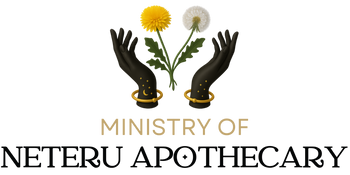Introduction
Our genes are not rigid blueprints; they are more like musical scores, waiting for cues to determine which notes are played and which remain silent. The science of epigenetics shows us that lifestyle, environment, and even emotions can influence how genes are expressed. Herbs, long woven into the rhythms of human life, can act as epigenetic modulators, turning protective pathways on and silencing those that foster imbalance.
The Symphony of Gene Expression
Every cell carries the same DNA, yet a liver cell behaves differently from a neuron because different genes are activated. Epigenetics, through mechanisms like DNA methylation and histone modification, decides which genes are “on” or “off.” Stress, toxins, and poor diet can push the symphony toward disharmony, while herbs bring in conductors that help retune the orchestra.
Herbal Allies in Epigenetic Modulation
Turmeric (Curcuma longa)
Turmeric is the golden scribe. He can modify histone activity, reduce inflammation, and influence tumor suppressor genes. His writing in gold directs cells toward healing rather than harm.
Green Tea (Camellia sinensis)
Green Tea is the quiet sentinel of DNA. Her polyphenols regulate methylation patterns, preventing harmful genes from taking center stage while supporting protective ones.
Rosemary (Rosmarinus officinalis)
Rosemary is the fragrant spark that sharpens the genetic script. He influences detoxification pathways, protecting cells from oxidative stress and reshaping how stress-response genes behave.
Broccoli Sprouts (Sulforaphane)
Though humble, Broccoli Sprout is a potent transformer. She activates antioxidant genes and silences those driving chronic inflammation. Her work is subtle but powerful, a gardener tending soil at the root level.
Ashwagandha (Withania somnifera)
Ashwagandha is the adaptogenic guide. He balances stress-related gene expression, protecting neurons and supporting resilience under environmental pressures.
Mechanisms in Action
· Turmeric & Green Tea influence histone acetylation and DNA methylation, reshaping gene activity.
· Rosemary activates detoxification enzymes, enhancing cellular defenses.
· Sulforaphane boosts antioxidant response pathways (Nrf2 activation).
· Ashwagandha modulates stress-response genes, protecting neuronal health.
Together, these herbs do not rewrite the genetic code, they adjust the performance, ensuring the body’s orchestra plays in harmony with health.
Cultural & Spiritual Reflections
In traditional medicine, herbs were never seen as simply remedies. They were teachers. Turmeric was revered in India for purification rituals, Green Tea for mindful clarity in Asia, and Ashwagandha for deep strength in Ayurveda. Today, science echoes what tradition has long known: these plants influence not only the body but also the way life’s script unfolds at the most subtle levels.
Conclusion
Epigenetics reminds us that destiny is not fixed. Herbs such as Turmeric, Green Tea, Rosemary, Broccoli Sprouts, and Ashwagandha offer keys to unlock the body’s resilience, silencing harmful pathways and amplifying protective ones. They invite us to live as active participants in the unfolding story of our health, where genes are notes, but lifestyle and herbs conduct the song.
👉 Schedule a Consultation
👉 Explore Our Products
👉 Visit Our Website
References & Further Reading
1. Link A, Balaguer F, Goel A. Cancer chemoprevention by dietary polyphenols: Promising role for epigenetics. Biochem Pharmacol.
2. Myzak MC, Dashwood RH. Sulforaphane and histone deacetylase inhibition. J Nutr.
3. Sharma S, et al. Epigenetic modulation by Ashwagandha in stress response pathways. Phytomedicine.
4. Ferguson LR, et al. Nutrigenomics and epigenetics: Green Tea and Rosemary. Mutat Res.

